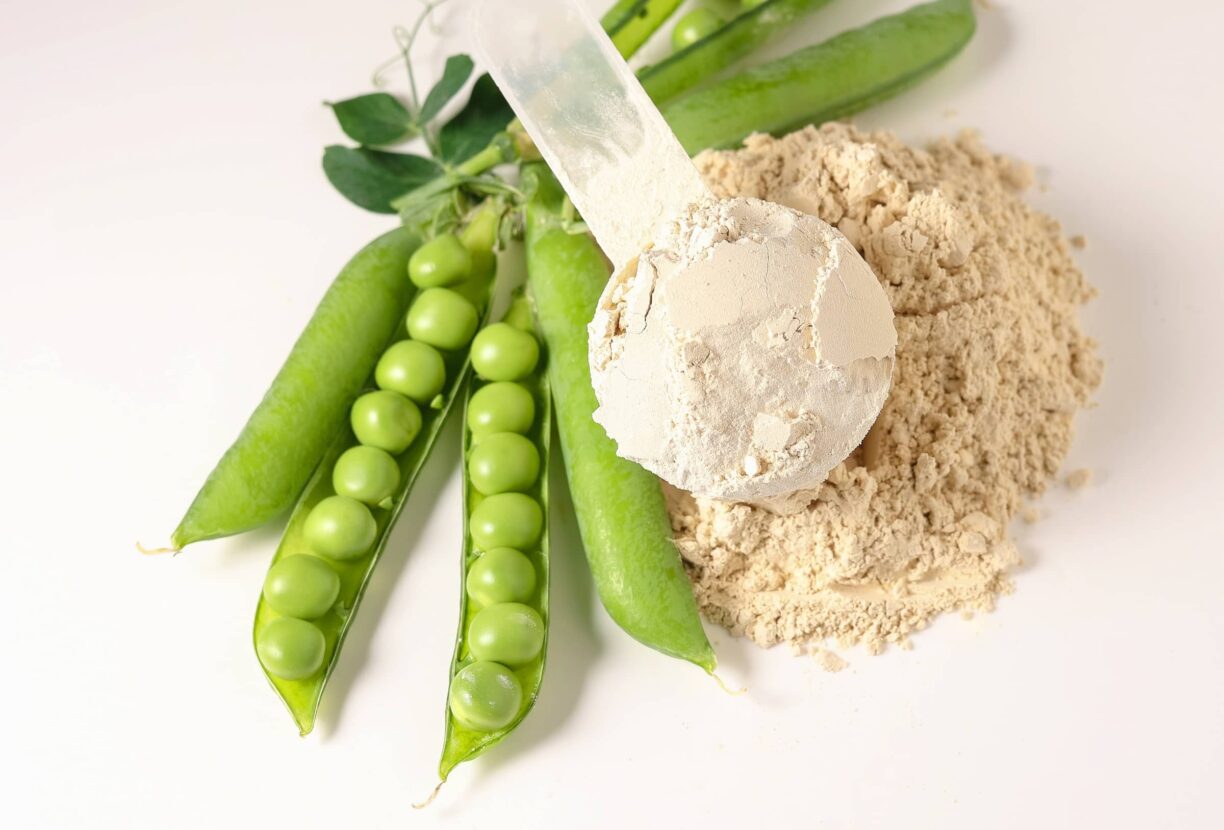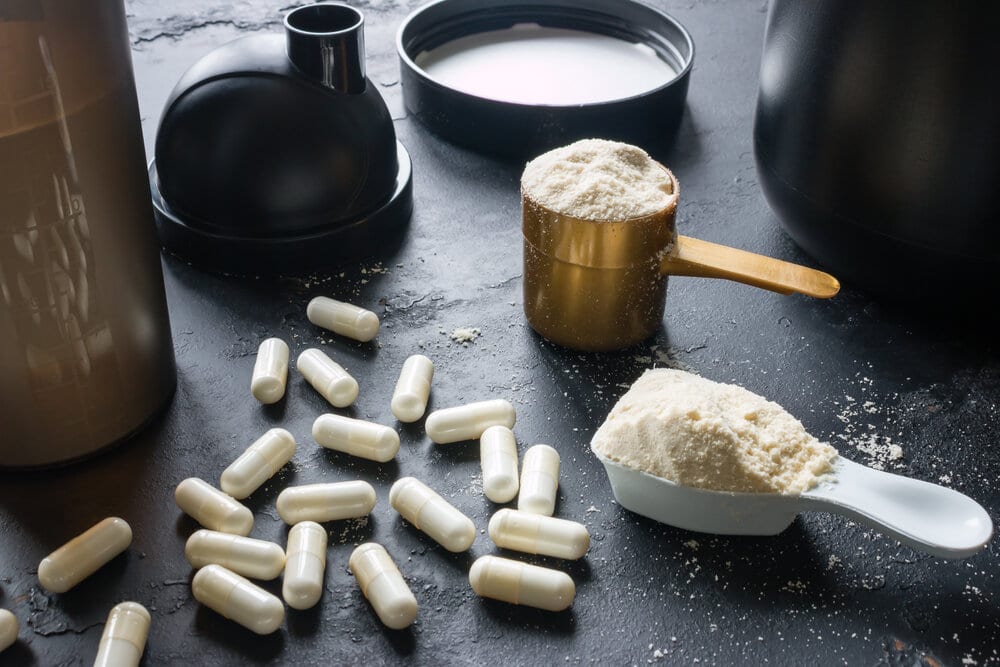Protein powders offer a convenient and efficient source of high-quality protein, essential for muscle repair and growth.
After intense workouts, muscles require sufficient protein to recover and rebuild stronger, making protein powders an invaluable tool for those looking to increase muscle mass, improve recovery times, and achieve their fitness goals.
To cater to different lifestyles and dietary preferences, manufacturers produce both animal-based and plant-based protein powders.
Understanding the differences and similarities between these two types is crucial for choosing the best protein powder to meet your dietary needs and fitness objectives.
How Are They Sourced?

The source of animal and plant proteins is the most distinguishing factor. Animal-based proteins are typically derived from various animal products, including meat, poultry, whey, and dairy.
In contrast, plant-based proteins are sourced from a variety of plants, such as legumes, wheat, grains, and oats.
You’ll notice that animal-based protein powders generally contain more protein per weight than their plant-based counterparts. This is not the only difference; they also tend to be of higher quality.
When it comes to the quality of a protein powder Australia manufacturers use the PDCAAS (Protein Digestibility Corrected Amino Acid Score), which takes into account both the amino acid composition of a protein source and how well the body can digest it.
Plant-based proteins often contain antinutritional factors—substances that interfere with nutrient absorption—reducing the amount of protein the body can effectively utilise.
As a result, plant proteins generally receive lower PDCAAS scores compared to animal proteins.
Their Protein Content

As mentioned earlier, animal protein powders typically have a higher protein content. This is because animal-based proteins are complete, meaning they contain all nine essential amino acids that the body cannot produce on its own.
Additionally, animal protein powders often contain branched-chain amino acids (BCAAs) such as leucine, isoleucine, and valine, which are important for muscle building.
Most plant-based protein powders are incomplete, meaning they do not provide all nine essential amino acids in the necessary amounts for muscle growth.
The protein content of plant-based powders varies depending on the plant source used. Soy protein powder is the only plant-based option considered complete.
To address this, some manufacturers blend various plant proteins in their products to provide all the essential amino acids and BCAAs.
To determine if a protein powder offers an adequate amount of protein and a balanced amino acid profile, it’s best to check the nutritional label.
Food Sensitivities and Digestibility
Some animal protein powders, such as whey protein, contain lactose, a common dietary sensitivity. In this case, choosing whey protein isolate can help reduce the amount of lactose per serving.
However, if you are highly sensitive to lactose, even these isolates may still cause stomach distress, bloating, and gas.
Plant-based protein powders can also contain allergens. Some varieties may include common allergens like soy and gluten.
If you need to avoid these allergens, it is important to read labels carefully and choose products that are clearly marked as soy-free or gluten-free.
Additionally, certain plant-protein powders, particularly those containing pea protein, may cause bloating or cramping for individuals with irritable bowel syndrome (IBS) or sensitivity to FODMAPs.
If you suffer from food sensitivities, experimenting with different protein powders and keeping a food and symptom diary can help determine which ones are best suited for you.
This method allows you to track any adverse effects you might experience with various products.
Effectiveness for Muscle Growth

Is plant or animal protein better for muscle growth? The complete amino acid profile of animal protein powders combined with their better digestibility make them better at building muscle.
However, plant-based protein powders contain similar amounts of protein and BCAAs per serving can also be equally effective at promoting muscle growth.
So, although animal proteins are often considered more effective for muscle growth due to their complete amino acid profile, higher leucine content, and bioavailability, plant proteins can still be highly effective when combined properly.
Research suggests that individuals supplementing with plant-based powders can achieve similar muscle growth and strength gains if they ensure adequate protein intake and variety.
What Else Do You Need to Consider?
Both animal and plant-based protein powders can be beneficial additions to your diet. However, it’s important to remember that both are technically processed foods.
When choosing the best option for your needs, consider a few additional factors.
Additives and Artificial Ingredients
Many protein powders, particularly those with flavours like cookie dough or cake batter, contain synthetic flavourings.
Many are also artificially sweetened or have multiple additives. Look for a healthier option with fewer ingredients and a significant amount of protein—at least 20g per serving.
Soy-Based Protein Products and GMOs
You may be concerned about choosing a plant-based protein powder that contains soy.
There is considerable debate over whether soy’s estrogenic properties are harmful. Additionally, soy is a common allergen, which means it may not be suitable for everyone.
The issue of genetic modification also adds to the debate. Most soybeans grown today are genetically modified, so unless the label states that the product is organic or non-GMO, it is likely that your soy protein contains GMOs.
Research on the effects of GMOs on health and the environment is mixed, so whether to consume them (in protein powders or otherwise) is a personal decision.
Best Ways to Consume Protein Powders

For animal-based protein powders, such as whey or casein, the best time to consume them is shortly after a workout.
Whey protein is quickly absorbed by the body, making it ideal for post-exercise recovery as it rapidly delivers amino acids to the muscles, aiding in repair and growth.
Casein, on the other hand, is a slower-digesting protein that can be consumed before bedtime to provide a steady release of protein throughout the night, supporting muscle repair and growth during sleep.
Plant-based protein powders should be consumed similarly to animal-based proteins—post-workout for immediate recovery or blended with a carbohydrate source for a balanced meal replacement.
For optimal results, pairing plant-based proteins with a diverse diet ensures adequate intake of all essential amino acids.





